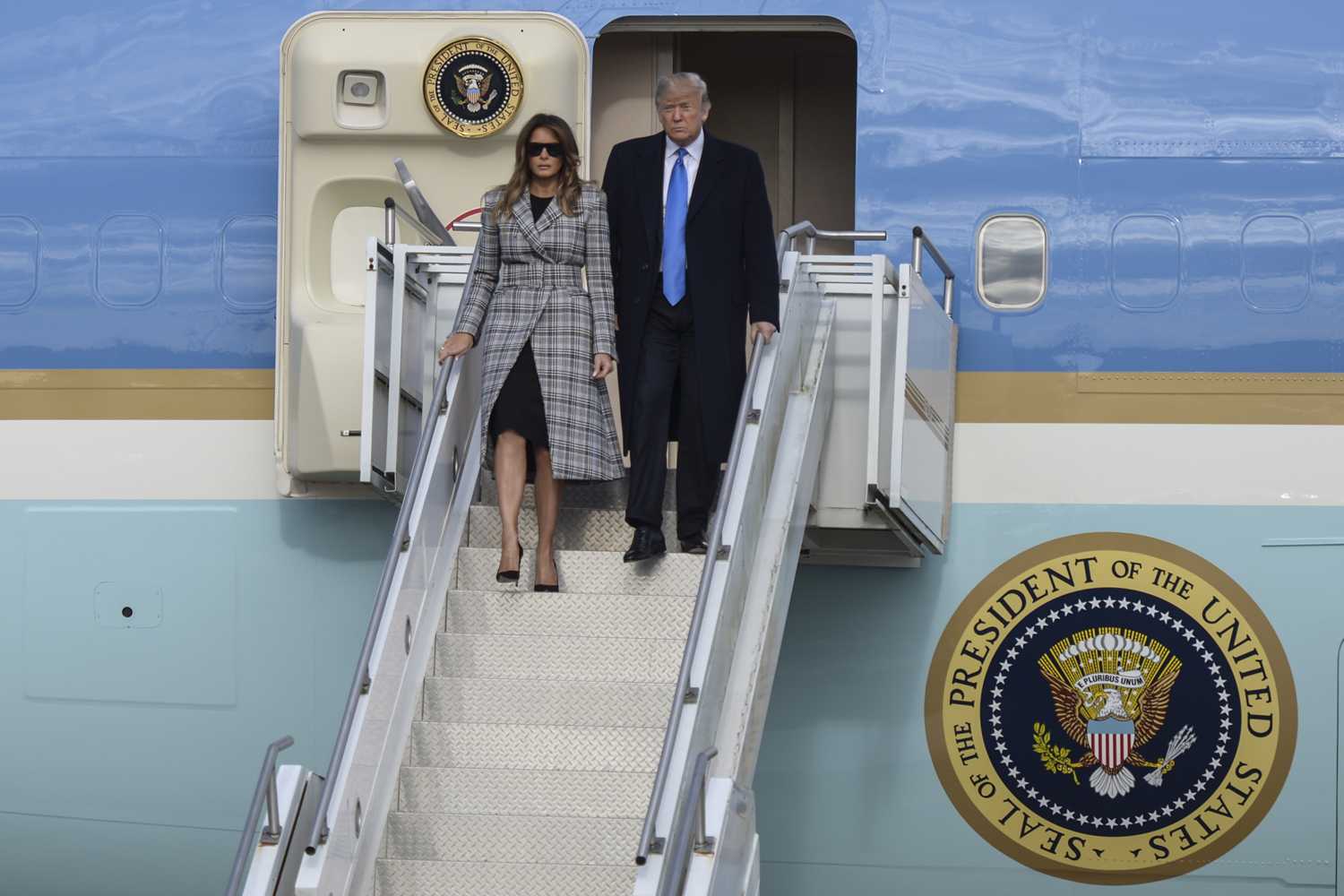Editorial: Executive order on birthright citizenship unconstitutional


President Donald Trump and First Lady Melania Trump disembark from Air Force One in Coraopolis around 4 p.m. on Tuesday.
Just days after the deadliest anti-Semitic attack in U.S. history at the Tree of Life Synagogue in Pittsburgh, President Trump announced something that undoubtedly delighted white nationalists — a promise to end birthright citizenship.
The president fueled his election campaign with fear and hatred toward immigrants, but his most recent attack on them could affect the way we interpret the Constitution itself — an overreach of executive power that would hurt the lives of hundreds of thousands of children born to noncitizen parents.
The idea of birthright citizenship is firmly entrenched in our history. The 14th Amendment was passed after the Civil War and intended to ensure all slaves born in the United States were granted citizenship, regardless of what laws might be in place at the state level that might prevent it. The amendment states that “all persons born or naturalized in the United States and subject to the jurisdiction thereof, are citizens of the United States and of the State wherein they reside.”
This, since Reconstruction, has meant that no matter the legal status of a person’s parents, they are a citizen of the country if born on U.S. soil. However, the president announced in his days on the campaign trail his intention to prevent children of parents who are not U.S. citizens from obtaining citizenship. After years in office, he’s decided that the best way to accomplish that is through an executive order.
“We’re the only country in the world where a person comes in and has a baby, and the baby is essentially a citizen of the United States … with all of those benefits,” Trump told Axios on Tuesday. “It’s ridiculous. It’s ridiculous. And it has to end.”
What is even more ridiculous is how misinformed the president is on the matter. The United States isn’t even close to the only country that provides birthright citizenship — more than 30 other countries have the same policy. And it’s this misinformation that will be used to potentially alter the constitution.
“It was always told to me that you need a constitutional amendment,” Trump said regarding the process to change the 14th Amendment. “Guess what? You don’t.”
He’s not completely wrong, but he’s also not right. Most constitutional experts agree that an executive order, despite the president’s claim, can’t change what is written in the Constitution. It would be a breach in the separation of powers on which our entire government is based — the executive branch cannot interpret what the legislative branch decrees, it can only enforce.
But an executive order could force the Supreme Court to weigh in on the constitutionality of the order, and on the way we interpret the 14th Amendment. It would be a decision that could cause lasting damage to the status of children born to undocumented immigrants in the United States.
The president seems to be using every tool in his arsenal to appeal to voters who fear a U.S. takeover by immigrants. This particular decision, however, could alter our interpretation of the Constitution as it pertains to the basic rights of a group of people who can’t control where they’re born.
Recent Posts
SGB addresses concerns about ICE presence on campus, hears SJP lawsuit against administration, approves governing code bill
At its weekly meeting on Tuesday at Nordy’s Place, Student Government Board heard concerns about…
ACLU of Pennsylvania sues Pitt over SJP suspension
The ACLU of Pennsylvania filed a federal civil lawsuit against the University of Pittsburgh and…
Marquan Pope: The ultimate shark
One of the most remarkable things about sharks is that an injury doesn’t deter them.…
Who Asked? // Do we really get a summer vacation?
This installment of Who Asked? by staff writer Brynn Murawski mourns the seemingly impossible perfect…
Notes From an Average Girl // Notes from my junior year
In this edition of Notes From an Average Girl, senior staff writer Madeline Milchman reflects…
Meaning at the Movies // The Power of the Movie Theater
In this edition of “Meaning at the Movies,” staff writer Lauren Deaton discusses her love…

